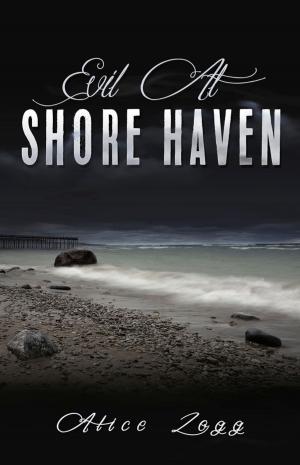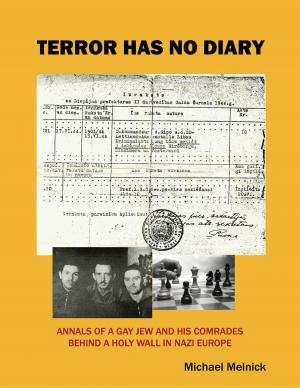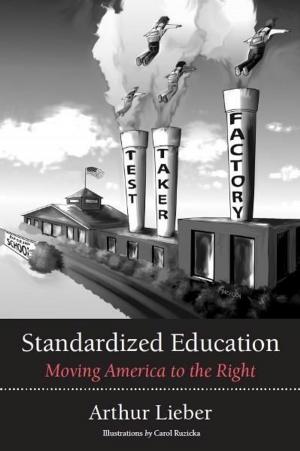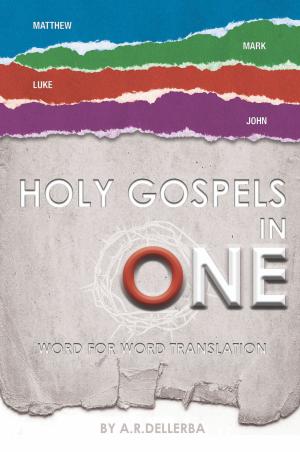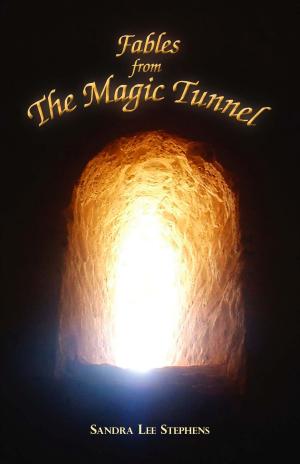The Court-Martial of General John Pope
Nonfiction, History, Americas, United States, Civil War Period (1850-1877), Military, Fiction & Literature, Historical| Author: | Steven Condon | ISBN: | 9781456605216 |
| Publisher: | eBookIt.com | Publication: | June 19, 2012 |
| Imprint: | eBookIt.com | Language: | English |
| Author: | Steven Condon |
| ISBN: | 9781456605216 |
| Publisher: | eBookIt.com |
| Publication: | June 19, 2012 |
| Imprint: | eBookIt.com |
| Language: | English |
This book, which takes a bold new look at the Second Manassas Campaign, is full of surprises, including a mistaken mountain, a warning that never was, and Pope's real plan for entrapping Stonewall Jackson. It contains an amazing Union supporting cast that includes a train-stealing renegade general, another general who was sent to reinforce Pope but who nevertheless sought to abandon him on the eve of battle, and another Union general who gloated over what he foresaw as Pope's imminent battlefield defeat and then not surprisingly repeatedly delayed the forwarding of reinforcements to Pope. No, 'The Court-Martial of General John Pope' is not alternate history. And, no, the many startling insights and new discoveries within this book are not fictions, even though they are presented within the framework of a fictional trial taking place in the afterlife.
It seems that the much maligned Union general John Pope has demanded a trial in order to once and for all clear his military reputation from 150 years of accumulated slights, slanders, and misconceptions. And who is defending Pope in the Valhalla Courthouse; none other than that peerless American defense attorney Clarence Darrow.
The packed courtroom blazes with electricity and occasionally thunders in outrage as the wily Darrow pulls one white rabbit after another out of his well-stocked magician's hat in a performance that rivals his very best. But Darrow has his work cut out for him as he faces a tribunal as daunting as any that ever sat in judgment at Nuremberg, packed as it is with the ablest generals of history. Ranging across the centuries from Alexander the Great to America's George S. Patton, these masters of the military art have—like all others—long considered Pope to be a laughingstock.
Equally entertaining are the events outside the courtroom as twice each day three noted members of the press corps—including Mark Twain and Nellie Bly—furiously debate among themselves the merits of Darrow's long string of revelations. Readers can enjoy the excitement of courtroom drama as they thrill to some of the most startling discoveries in Civil War history in recent times and discover one of the fiercest but least known rivalries in American history.
This is because 'Court-Martial' boasts as its centerpiece a rivalry that was perhaps the most fascinating and devastating in American history: the fierce competition between Union General John Pope, the darling of the radical Republicans, and Union General George McClellan, the military standard bearer of the conservative Democratic Party and later Abraham Lincoln's Democratic opponent for President in 1864. 'Court-Martial' convincingly demonstrates for perhaps the first time the true depth and terrible impact of this fateful rivalry.
Competing with the Pope-McClellan rivalry for attention, however, is the drama of the controversy that spurred one of the most celebrated and politically volatile courtroom battles of the latter half of the 19th Century, the fifteen-year conflict between John Pope and the general officer who was court-martialed and drummed out of the army for not giving Pope his full support at Second Manassas—Major General Fitz John Porter, noted friend and protégé of George McClellan.
The often amazing evidence brought forward by Darrow in his client's defense is well corroborated by over 300 end notes. Some historians and Civil War aficionados may object to the placement of this new evidence inside a dramatic fictional story. But given the degree to which John Pope's military reputation has unintentionally been misrepresented and the 130 years for which this has gone on, it was felt that, in order to shake the public's long frozen opinion of John Pope free from its icebound state, the setting of a trial and the skills of an advocate of the caliber of Clarence Darrow were required.
It seems that the much maligned Union general John Pope has demanded a trial in order to once and for all clear his military reputation from 150 years of accumulated slights, slanders, and misconceptions. And who is defending Pope in the Valhalla Courthouse; none other than that peerless American defense attorney Clarence Darrow.
The packed courtroom blazes with electricity and occasionally thunders in outrage as the wily Darrow pulls one white rabbit after another out of his well-stocked magician's hat in a performance that rivals his very best. But Darrow has his work cut out for him as he faces a tribunal as daunting as any that ever sat in judgment at Nuremberg, packed as it is with the ablest generals of history. Ranging across the centuries from Alexander the Great to America's George S. Patton, these masters of the military art have—like all others—long considered Pope to be a laughingstock.
Equally entertaining are the events outside the courtroom as twice each day three noted members of the press corps—including Mark Twain and Nellie Bly—furiously debate among themselves the merits of Darrow's long string of revelations. Readers can enjoy the excitement of courtroom drama as they thrill to some of the most startling discoveries in Civil War history in recent times and discover one of the fiercest but least known rivalries in American history.
This is because 'Court-Martial' boasts as its centerpiece a rivalry that was perhaps the most fascinating and devastating in American history: the fierce competition between Union General John Pope, the darling of the radical Republicans, and Union General George McClellan, the military standard bearer of the conservative Democratic Party and later Abraham Lincoln's Democratic opponent for President in 1864. 'Court-Martial' convincingly demonstrates for perhaps the first time the true depth and terrible impact of this fateful rivalry.
Competing with the Pope-McClellan rivalry for attention, however, is the drama of the controversy that spurred one of the most celebrated and politically volatile courtroom battles of the latter half of the 19th Century, the fifteen-year conflict between John Pope and the general officer who was court-martialed and drummed out of the army for not giving Pope his full support at Second Manassas—Major General Fitz John Porter, noted friend and protégé of George McClellan.
The often amazing evidence brought forward by Darrow in his client's defense is well corroborated by over 300 end notes. Some historians and Civil War aficionados may object to the placement of this new evidence inside a dramatic fictional story. But given the degree to which John Pope's military reputation has unintentionally been misrepresented and the 130 years for which this has gone on, it was felt that, in order to shake the public's long frozen opinion of John Pope free from its icebound state, the setting of a trial and the skills of an advocate of the caliber of Clarence Darrow were required.
This book, which takes a bold new look at the Second Manassas Campaign, is full of surprises, including a mistaken mountain, a warning that never was, and Pope's real plan for entrapping Stonewall Jackson. It contains an amazing Union supporting cast that includes a train-stealing renegade general, another general who was sent to reinforce Pope but who nevertheless sought to abandon him on the eve of battle, and another Union general who gloated over what he foresaw as Pope's imminent battlefield defeat and then not surprisingly repeatedly delayed the forwarding of reinforcements to Pope. No, 'The Court-Martial of General John Pope' is not alternate history. And, no, the many startling insights and new discoveries within this book are not fictions, even though they are presented within the framework of a fictional trial taking place in the afterlife.
It seems that the much maligned Union general John Pope has demanded a trial in order to once and for all clear his military reputation from 150 years of accumulated slights, slanders, and misconceptions. And who is defending Pope in the Valhalla Courthouse; none other than that peerless American defense attorney Clarence Darrow.
The packed courtroom blazes with electricity and occasionally thunders in outrage as the wily Darrow pulls one white rabbit after another out of his well-stocked magician's hat in a performance that rivals his very best. But Darrow has his work cut out for him as he faces a tribunal as daunting as any that ever sat in judgment at Nuremberg, packed as it is with the ablest generals of history. Ranging across the centuries from Alexander the Great to America's George S. Patton, these masters of the military art have—like all others—long considered Pope to be a laughingstock.
Equally entertaining are the events outside the courtroom as twice each day three noted members of the press corps—including Mark Twain and Nellie Bly—furiously debate among themselves the merits of Darrow's long string of revelations. Readers can enjoy the excitement of courtroom drama as they thrill to some of the most startling discoveries in Civil War history in recent times and discover one of the fiercest but least known rivalries in American history.
This is because 'Court-Martial' boasts as its centerpiece a rivalry that was perhaps the most fascinating and devastating in American history: the fierce competition between Union General John Pope, the darling of the radical Republicans, and Union General George McClellan, the military standard bearer of the conservative Democratic Party and later Abraham Lincoln's Democratic opponent for President in 1864. 'Court-Martial' convincingly demonstrates for perhaps the first time the true depth and terrible impact of this fateful rivalry.
Competing with the Pope-McClellan rivalry for attention, however, is the drama of the controversy that spurred one of the most celebrated and politically volatile courtroom battles of the latter half of the 19th Century, the fifteen-year conflict between John Pope and the general officer who was court-martialed and drummed out of the army for not giving Pope his full support at Second Manassas—Major General Fitz John Porter, noted friend and protégé of George McClellan.
The often amazing evidence brought forward by Darrow in his client's defense is well corroborated by over 300 end notes. Some historians and Civil War aficionados may object to the placement of this new evidence inside a dramatic fictional story. But given the degree to which John Pope's military reputation has unintentionally been misrepresented and the 130 years for which this has gone on, it was felt that, in order to shake the public's long frozen opinion of John Pope free from its icebound state, the setting of a trial and the skills of an advocate of the caliber of Clarence Darrow were required.
It seems that the much maligned Union general John Pope has demanded a trial in order to once and for all clear his military reputation from 150 years of accumulated slights, slanders, and misconceptions. And who is defending Pope in the Valhalla Courthouse; none other than that peerless American defense attorney Clarence Darrow.
The packed courtroom blazes with electricity and occasionally thunders in outrage as the wily Darrow pulls one white rabbit after another out of his well-stocked magician's hat in a performance that rivals his very best. But Darrow has his work cut out for him as he faces a tribunal as daunting as any that ever sat in judgment at Nuremberg, packed as it is with the ablest generals of history. Ranging across the centuries from Alexander the Great to America's George S. Patton, these masters of the military art have—like all others—long considered Pope to be a laughingstock.
Equally entertaining are the events outside the courtroom as twice each day three noted members of the press corps—including Mark Twain and Nellie Bly—furiously debate among themselves the merits of Darrow's long string of revelations. Readers can enjoy the excitement of courtroom drama as they thrill to some of the most startling discoveries in Civil War history in recent times and discover one of the fiercest but least known rivalries in American history.
This is because 'Court-Martial' boasts as its centerpiece a rivalry that was perhaps the most fascinating and devastating in American history: the fierce competition between Union General John Pope, the darling of the radical Republicans, and Union General George McClellan, the military standard bearer of the conservative Democratic Party and later Abraham Lincoln's Democratic opponent for President in 1864. 'Court-Martial' convincingly demonstrates for perhaps the first time the true depth and terrible impact of this fateful rivalry.
Competing with the Pope-McClellan rivalry for attention, however, is the drama of the controversy that spurred one of the most celebrated and politically volatile courtroom battles of the latter half of the 19th Century, the fifteen-year conflict between John Pope and the general officer who was court-martialed and drummed out of the army for not giving Pope his full support at Second Manassas—Major General Fitz John Porter, noted friend and protégé of George McClellan.
The often amazing evidence brought forward by Darrow in his client's defense is well corroborated by over 300 end notes. Some historians and Civil War aficionados may object to the placement of this new evidence inside a dramatic fictional story. But given the degree to which John Pope's military reputation has unintentionally been misrepresented and the 130 years for which this has gone on, it was felt that, in order to shake the public's long frozen opinion of John Pope free from its icebound state, the setting of a trial and the skills of an advocate of the caliber of Clarence Darrow were required.

